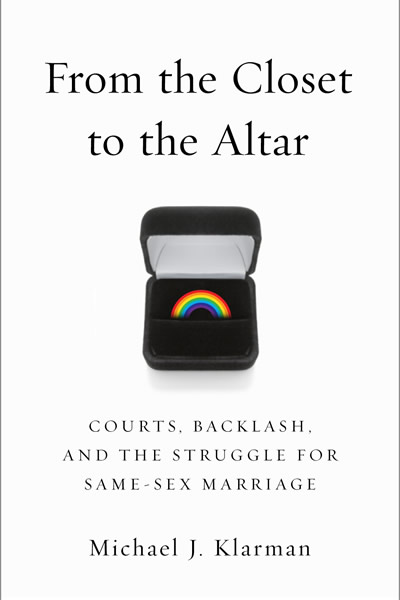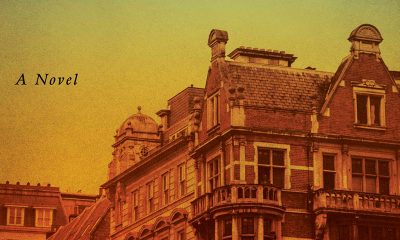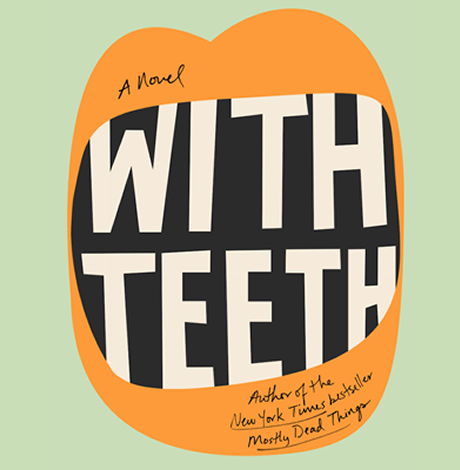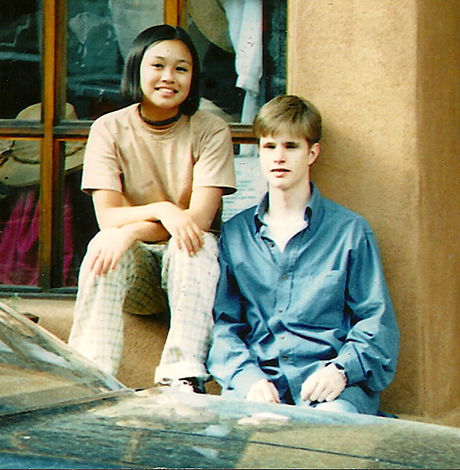Arts & Entertainment
Year in review: Books by the bounty
Several releases this year wrote eloquently of gay and trans themes
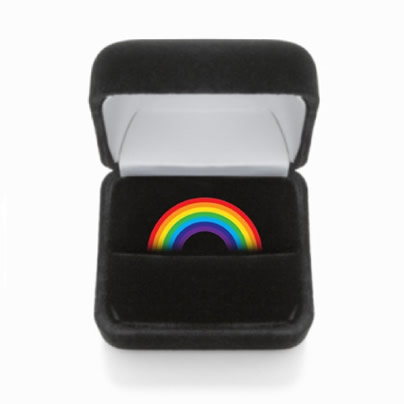
Drivel, dreck and what the heck?
That kind of sums up the books that were released this year. There were some good things, some downright awful things, and some things that, well, they weren’t bad but they weren’t the best books you’ve ever read, either.
And then there were the gems.
I read about 270 books this year, and (fortunate me!) it was hard to pick favorites, but nonetheless, here they are.
Adult fiction
For me, the world totally ceased to exist while I was reading “The Absolutist” by John Boyne. Set in the years after World War I, it’s the story of a former soldier who decides to return some letters to the sister of the friend who wrote them. Years ago, he knew the woman’s brother — had a crush on him, in fact — but the man is now dead, and when the sister asks what happened, the narrator tells her. What happens left me absolutely breathless.
If you plan on reading just one book this winter, this should be it. Really.
I have to admit: I’m not a major Eric Jerome Dickey reader. Some of his books leave me cold but “An Accidental Affair” chilled me with the action and double-crossing that happens to the book’s narrator, who catches his beloved wife sleeping with another man. What he has to do to get her out of trouble — and get himself out of danger — will make you turn the pages so fast, you’ll practically rip them.
What’s that word again for fiction based on fact? In the case of “October Mourning” by Lesleà Newman, the word is “powerful.”
Based on the Matthew Shepard murder, this book consists of a series of free-form poems from the POV of the things and creatures that witnessed his death: the fence, a doe that wandered by, the road, the truck. There are real quotes entwined amid the verses, which only serves to heighten the punch in the gut you’ll feel with this book.
I listened to it in audio. I bawled til I could barely breathe.
And if you’re thinking about starting a family, “The Paternity Test” by Michael Lowenthal may be one of the better books you’ll read about it.
Yes, this is fiction. It’s about a couple who have had a shaky relationship for years and then finally decide to settle down and have a baby through surrogacy. But it’s not that easy and I can’t tell you anything else. Just read it — seriously.
Adult non-fiction
Hands-down, the LGBT memoir I loved most this year was “Gypsy Boy” by Mikey Walsh. Walsh was born a Romany Gypsy and lived as a child in Europe in a series of camps and compounds. His father was determined to make Walsh the latest of a lineage of fierce fighters and, to that end, he beat his son every day, sometimes multiple times. But what the elder Walsh didn’t know was that his son was gay.
Walsh gives this book a laissez faire tone, but don’t let that fool you — this book packs a wallop and can’t be missed.
I’m a sucker for a good scandal and “Dropped Names” by Frank Langella had its share. Langella seemed to always be in the proverbial right place at the right time. That kind of luck put him in proximity of a lot of Hollywood stars and it started his career. This is a light-reading book with dozens of tiny chapters and big names. For any fan of movies, Broadway, or television, particularly from decades past, this is a great book.
As I started reading “From the Closet to the Altar” by Michael J. Klarman, I was afraid I was in for something dry. Not so much, as it turns out: this book isn’t just about gay marriage, it’s also about the history of gay rights and coming proudly out. Turns out that this book is a little like a good martini: a little dry, a little bitter and an interesting taste that leaves you wanting more.
And finally, I don’t think I’ll ever forget “A Queer and Pleasant Danger” by Kate Bornstein. It’s the story of a man who becomes a woman, a religion that almost derails that process and the aftermath of getting out of something very scary.
Bornstein is funny and self-depreciating, snarky and kind. You’ll find a lot of bravado in this book but read it — and read between the lines.
And there you have it: eight books on which you can use your gift certificate. Eight books to help you get through the winter. Books you just can’t miss.
Photos
PHOTOS: Montgomery County Pride in the Plaza
LGBTQ celebration held in downtown Silver Spring

Montgomery County Pride in the Plaza was held on Sunday, June 29 at Veterans Plaza in Silver Spring, Md.
(Washington Blade photos by Michael Key)























The fifth annual Fredericksburg Pride march and festival was held on Saturday, June 28. A march through the streets of downtown Fredericksburg, Va. was followed by a festival at Riverfront Park.
(Washington Blade photos by Michael Key)



















India
Anaya Bangar challenges ban on trans women in female cricket teams
Former Indian cricketer Sanjay Bangar’s daughter has received support

Anaya Bangar, the daughter of former Indian cricketer Sanjay Bangar, has partnered with the Manchester Metropolitan University Institute of Sport in the U.K. to assess her physiological profile following her gender-affirming surgery and undergoing hormone replacement therapy.
From January to March 2025, the 23-year-old underwent an eight-week research project that measured her glucose levels, oxygen uptake, muscle mass, strength, and endurance after extensive training.
The results, shared via Instagram, revealed her metrics align with those of cisgender female athletes, positioning her as eligible for women’s cricket under current scientific standards. Bangar’s findings challenge the International Cricket Council’s 2023 ban on transgender athletes in women’s cricket, prompting her to call for a science-based dialogue with the Board of Control for Cricket in India and the ICC to reform policies for trans inclusion.
“I am talking with scientific evidence in my hand,” Bangar said in an interview posted to her Instagram page. “So, I hope, this makes an impact and I will be hoping to BCCI and ICC talking with me and discussing this further.”
On Nov. 21, 2023, the ICC enacted a controversial policy barring trans women from international women’s cricket. Finalized after a board meeting in Ahmedabad, India, the regulation prohibits any trans player who has experienced male puberty from competing, irrespective of gender-affirming surgery or hormone therapy. Developed through a 9-month consultation led by the ICC’s Medical Advisory Committee, the rule aims to safeguard the “integrity, safety, and fairness” of women’s cricket but has drawn criticism for excluding athletes like Canada’s Danielle McGahey, the first trans woman to play internationally. The policy, which allows domestic boards to set their own rules, is slated for review by November 2025.
Bangar shared a document on social media verifying her participation in a physiological study at the Manchester Metropolitan University Institute of Sport, conducted from Jan. 20 to March 3, 2025, focused on cricket performance. The report confirmed that her vital metrics — including hemoglobin, blood glucose, peak power, and mean power — aligned with those of cisgender female athletes. Initially, her fasting blood glucose measured 6.1 mmol/L, slightly above the typical non-diabetic range of 4.0–5.9 mmol/L, but subsequent tests showed it normalized, reinforcing the study’s findings that her physical profile meets female athletic standards.
“I am submitting this to the BCCI and ICC, with full transparency and hope,” said Bangar. “My only intention is to start a conversation based on facts not fear. To build space, not divide it.”
In a letter to the BCCI and the ICC, Bangar emphasized her test results from the Manchester Metropolitan University study. She explained that the research aimed to assess how hormone therapy had influenced her strength, stamina, hemoglobin, glucose levels, and overall performance, benchmarked directly against cisgender female athletic standards.
Bangar’s letter to the BCCI and the ICC clarified the Manchester study was not intended as a political statement but as a catalyst for a science-driven dialogue on fairness and inclusion in cricket. She emphasized the importance of prioritizing empirical data over assumptions to shape equitable policies for trans athletes in the sport.
Bangar urged the BCCI, the world’s most influential cricket authority, to initiate a formal dialogue on trans women’s inclusion in women’s cricket, rooted in medical science, performance metrics, and ethical fairness. She called for the exploration of eligibility pathways based on sport-specific criteria, such as hemoglobin thresholds, testosterone suppression timelines, and standardized performance testing. Additionally, she advocated for collaboration with experts, athletes, and legal advisors to develop policies that balance inclusivity with competitive integrity.
“I am releasing my report and story publicly not for sympathy, but for truth. Because inclusion does not mean ignoring fairness, it means measuring it, transparently and responsibly,” said Bangar in a letter to the BCCI. “I would deeply appreciate the opportunity to meet with you or a representative of the BCCI or ICC to present my findings, discuss possible policy pathways, and work towards a future where every athlete is evaluated based on real data, not outdated perceptions.”
Before her transition, Bangar competed for Islam Gymkhana in Mumbai and Hinckley Cricket Club in the U.K., showcasing her talent in domestic cricket circuits. Her father, Sanjay Bangar, was a dependable all-rounder for the Indian national cricket team from 2001 to 2004, playing 12 test matches and 15 One Day Internationals. He later served as a batting coach for the Indian team from 2014 to 2019, contributing to its strategic development.
Cricket in India is a cultural phenomenon, commanding a fanbase of more than 1 billion, with more than 80 percent of global cricket viewership originating from the country.
The International Cricket Council, the sport’s governing body, oversees 12 full member nations and more than 90 associate members, with the U.S. recently gaining associate member status in 2019 and co-hosting the 2024 ICC Men’s T20 World Cup. The BCCI generated approximately $2.25 billion in revenue in the 2023–24 financial year, primarily from the Indian Premier League, bilateral series, and ICC revenue sharing. The ICC earns over $3 billion from media rights in India alone for the 2024–27 cycle, contributing nearly 90 percent of its global media rights revenue, with the BCCI receiving 38.5 percent of the ICC’s annual earnings, approximately $231 million per year.
Women’s cricket in India enjoys a growing fanbase, with over 300 million viewers for the Women’s Premier League in 2024, making it a significant driver of the sport’s global popularity. The International Cricket Council oversees women’s cricket in 12 full member nations and over 90 associate members, with the U.S. fielding a women’s team since gaining associate status in 2019 and competing in ICC events like the 2024 Women’s T20 World Cup qualifiers. The BCCI invests heavily in women’s cricket, allocating approximately $60 million annually to the WPL and domestic programs in 2024–25, while contributing to the ICC’s $20 million budget for women’s cricket development globally. India’s media market for women’s cricket, including WPL broadcasting rights, generated $120 million in 2024, accounting for over 50 percent of the ICC’s women’s cricket media revenue.
“As a woman, I feel when someone says that they are women, then they are, be trans or cis. A trans woman is definitely the same as a cis woman emotionally and in vitals, and specially, when someone is on hormone replacement therapy. Stopping Anaya Bangar from playing is discrimination and violation of her rights. It is really sad and painful that every trans woman need to fight and prove their identity everywhere,” said Indrani Chakraborty, an LGBTQ rights activist and a mother of a trans woman. “If ICC and BCCI is stopping her from playing for being transgender, then I will say this to be their lack of awareness and of course the social mindsets which deny acceptance.”
Chakraborty told the Blade that Bangar is an asset, no matter what. She said that the women’s cricket team will only benefit by participation, but the discriminating policies are the hindrance.
“Actually the transgender community face such discrimination in every sphere. In spite of being potent, they face rejection. This is highly inhuman. These attitudes is regressive and will never let to prosper. Are we really in 2025?,” said Chakraborty. “We, our mindset and the society are the issues. We, as a whole, need to get aware and have to come together for getting justice for Anaya. If today, we remain silent, the entire community will be oppressed. Proper knowledge of gender issues need to be understood.”
The BCCI and the International Cricket Council have not responded to the Blade’s repeated requests for comment.
-

 District of Columbia5 days ago
District of Columbia5 days agoActivists protest outside Hungarian Embassy in DC
-

 Virginia4 days ago
Virginia4 days agoSpanberger touts equality, reproductive rights in Arlington
-

 Books4 days ago
Books4 days agoTwo new books on dining out LGBTQ-style
-

 Theater4 days ago
Theater4 days ago‘Andy Warhol in Iran’ a charming look at intersection of art, politics

